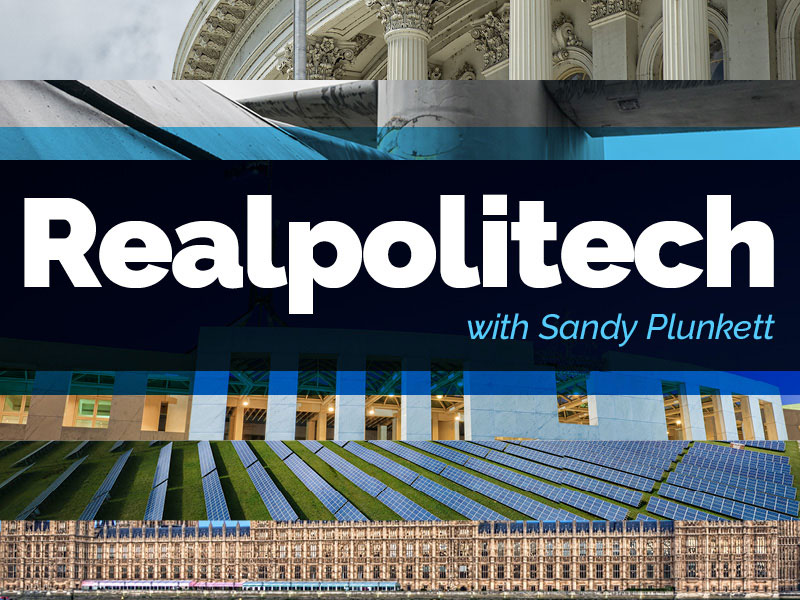In comedy and politics, just as in business and innovation, timing is everything. This week, Australians were reminded of the truth of this enduring axiom.
News Corporation Australasia executive chairman Michael Miller fronted the National Press Club in Canberra calling for the Australian government to reign-in the monopoly power of the Big Tech giants in the domestic market by forcing them to pay for and operate under a social licence.
At the same time in Sydney, the federal e-Safety Commissioner Julie Inman-Grant was surrendering to them.
Ms Inman-Grant announced her office was abandoning the legal battle against Elon Musk’s X social media platform to force the US-headquartered company to remove graphically violent content from X’s global service.
The case, which tried to force X to remove graphic footage of a church stabbing in Sydney in April, was seen as a test of Australia’s ability to enforce online safety requirements on the social media platforms. The test fizzled, and fast.
The case against Musk’s X was pursued by the e-safety commissioner after Musk – the world’s richest, loudest and seemingly unstoppable free speech absolutist – refused to remove the video content globally.

For reasons that almost certainly had little to do with protecting Australian children from graphic content, rival social media giants, Meta’s Facebook and Instagram, and Tik Tok, did block the content.
Now the lawsuit has been ditched for plan B. That is, to leave it with the Administrative Appeals Tribunal for a ‘merits review’, which, in the context of any fight with Big Tech, is really like a Plan F.
“After weighing multiple considerations, including litigation across multiple cases, I have considered this option likely to achieve the most positive outcome for the online safety of all Australians, especially children,” Ms Inman-Grant said.
From the start of this latest David vs Goliath tech battle, it was hard to see it as anything but an exercise in futility for the e-Safety Commission. The whole stoush at best, was fleetingly performative.
And even then, all the popcorn moments were served-up by Musk who repeatedly taunted the e-safety commissioner and labelled her on his X platform as a global ‘censorship commissar’.
But Realpolitech couldn’t quite fathom the “there, there” of Inman-Grant’s approach from the start.
Not least because the “multiple considerations” that Commissioner Inman Grant refers to and uses to justify her decision to abandon the legal case against X didn’t just pop up since April’s tragic stabbing incident and its fallout.
They have been present, growing in weight and number and increasingly institutionalised for nearly two decades.
They include the vast differences in degrees of power, money, litigation expertise and sheer will between the mostly US tech giants and the federal government of a medium sized country like Australia – a country like most others, where many millions of its citizens want their unfettered access to an immeasurable amount and type of digital content served up to them by foreign innovators.
It’s not just a David versus Goliath battle. It’s a slow-moving David without a slingshot versus a gang of digital era Goliath’s protected by a US law that has been enshrined since 1996, long before the internet era and the handful of giants that brought it life came to dominance globally.
That Law is Section 230 of the US’s 1996 Communications and Decency Act, which provides internet service providers safe harbors to operate as intermediaries of content without fear of being liable, if they take reasonable steps to prevent distribution of harmful or illegal content. Reasonable is highly interpretive.
The US statute enabled the commercial internet and the startups that innovated with it, to flourish in those early years.
In the years since, the US courts have expanded what the US Congress originally intended – or could foresee – for Section 230 and its impacts on individuals and societies.
And now those innovative startups have grown-up to be seemingly untouchable hyper-scaling monopolists who wield the Section 230 gift of near unlimited immunity from legal consequences – in the US and outside of it.
There is little doubt that this vast power and almost no accountability has invited much abuse on individuals (especially teenagers) and societal cohesion, particularly in the western world, as the tech giants tune their algorithms for attention and extreme fight and flight responses from human lizard brains.
On and off, US lawmakers have made a show of trying to address the extensive mission creep of Section 230 and its many negative impacts. For a variety of political, geopolitical and economic reasons, as well as Big Tech’s refusal to genuinely engage in working to a solution, nothing has stuck.
The most recent attempt came last month when a US Republican and Democrat duo drafted legislation to sunset Section 230.
“Our bill gives Big Tech a choice: Work with Congress to ensure the internet is a safe, healthy place for good or lose Section 230 entirely,” the authors wrote in the Wall Street Journal.
“Even American politicians and regulators know the time is up,” News Corp Australasia executive chairman Michael Miller told the National Press Club.
That’s not at all clear.
It’s true that US politicians and regulators know that Section 230 has created digital era monsters. But they are their monsters and many privately want them well fed and able in a time of great economic and technological rivalry between the US and China superpowers.
The CEOs of the US tech giants have long been out in front warning that stifling the US tech sector via new regulation allows China to win the 21st century tech war.
So, what can be done in and from Australia?
We know fines don’t work. The tech giants globally have been fined in the several billions of dollars for one breach of a country’s law or another.
And when Big Tech gets threatened by regulation, they have a playbook, says Mr Miller, where they claim they know they should be regulated, but that regulation should be harmonised across international jurisdictions. To them, this means harmonising US law globally.
So, the temptation is to say, not much can be done at all. But that may not be true either as the world has now a few decades of experience and study of the at times devastating impact on societies, children and economies globally.
Mr Miller said the case for change in Australia may in fact be proved “by losing in court, rather than by winning”.
“It’s time to stop asking for change and start demanding change,” says Mr Miller, adding that we can’t wait for the US reform of Section 230, and we don’t have time to build an international coalition with other countries.
“On behalf of 27 million Australians, the Australian government has the mandate and the ability to re-establish and re-assert itself as the representatives and rule-makers of Australia by resetting the rules regarding the global platforms’ access to Australians,”
“They should be made to pay a licence – a package of laws and requirements that tech monopolies will need to meet if they want access to subscribers.”
Philosophically, Mr Miller’s social licence concept is not entirely crazy – although the NPC questions to Mr Miller seemed to carry a “shoot the messenger’ vibe. Many tended to focus on perceived bad behaviour of News Corp rather than the tech giants.
Mr Miller opened his NPC address reminding us that “Between 2022-23, the Department of Home Affairs processed 8 million visas for visitors wanting to enter the country.”
In order to get that visa, all had to agree and sign the Australian values statement, to confirm they will respect the Australian way of life and obey the nation’s laws.
Foreign companies operating in Australia also must operate within Australian laws.
“This is not over-reach or pie-in-the-sky,” said Mr Miller. “You can’t mine copper in Australia as a foreign company without a licence to operate. Tech companies are mining companies too. They mine our lives.”
Mr Miller also believes a new Social Licence for the tech giants would complement and strengthen the News Media Bargaining Code introduced in 2021 after much wrangling between the legacy media companies in Australia and the US tech giants.
The News Media and Digital Platforms Mandatory Bargaining Code is a law designed to have large technology platforms that operate in Australia pay local news publishers for the news content made available or linked on their platforms.
It was hailed as a world first move at the time and largely applauded outside the US.
But in March, Meta’s Facebook announced it was not intending to renew the Media Bargaining Code when it expires soon.
Mr Miller’s response is good riddance.
“If Meta or Tik Tok or others refuse to sign the licence and walk away, my response would be ‘no loss’”.
His feelings are undoubtedly genuine. But it might be much harder for others to agree. Some 92 per cent of Australians use one or more of Meta’s social media platforms – Facebook or Instagram – per month.
Mr Miller emphasised that he had not yet rallied other Australian media companies or business leaders to support his Social License concept. He was simply using the NPC platform to float it as a potential path forward to try and reset a more level playing field.
Whether the idea gains any support at all in coming weeks or months depends on so many things, including how much Australians really care about the unfettered power and dominance of the tech giants, and also about what business and consumers are prepared to give up reining them in.
Realpolitech is not at all confident Australian consumers care enough, and that means the government won’t care enough either, especially as it tries to navigate successfully through a plethora of higher priority socio-economic challenges in the year before a federal election must be called.
Do you know more? Contact James Riley via Email.

